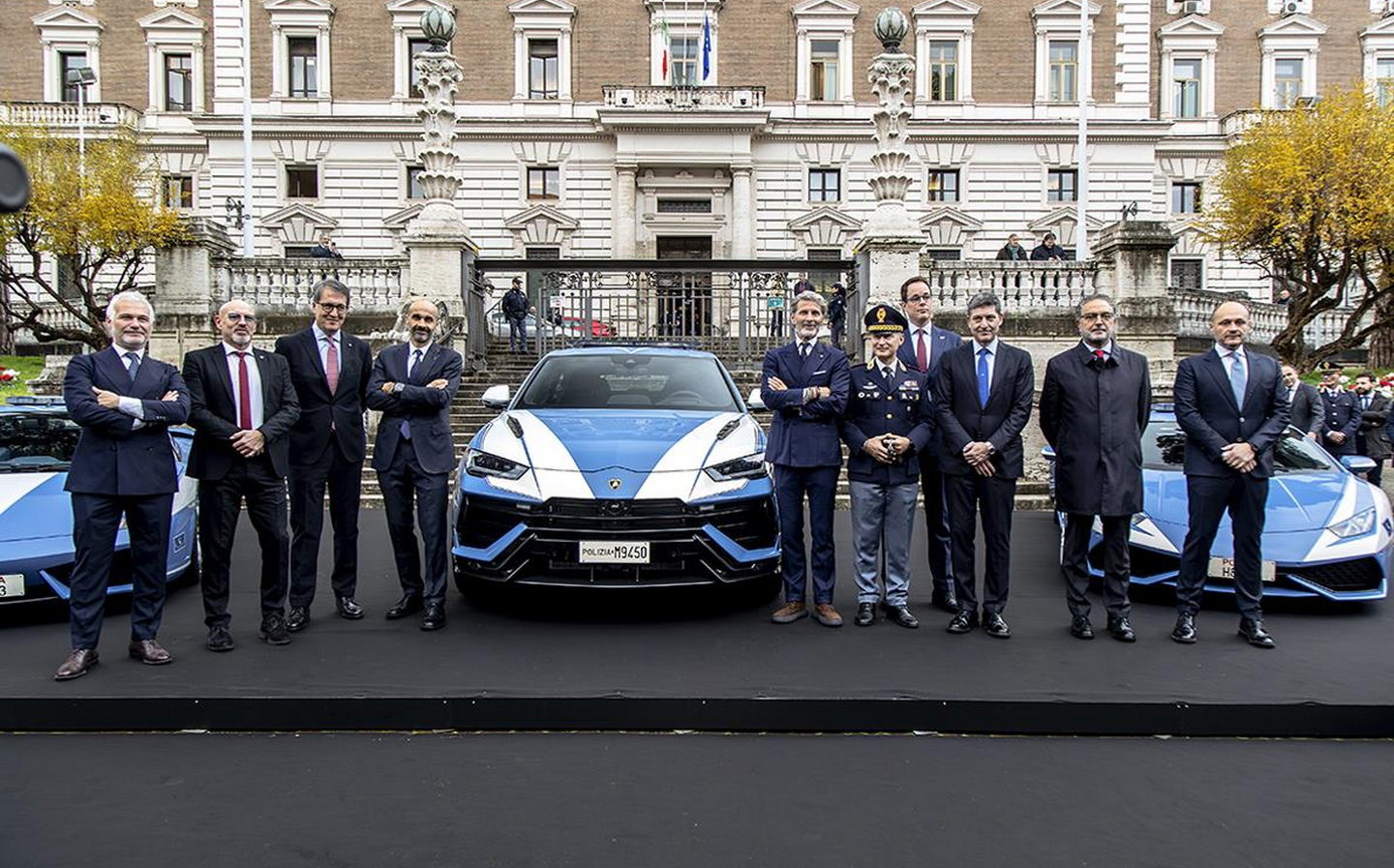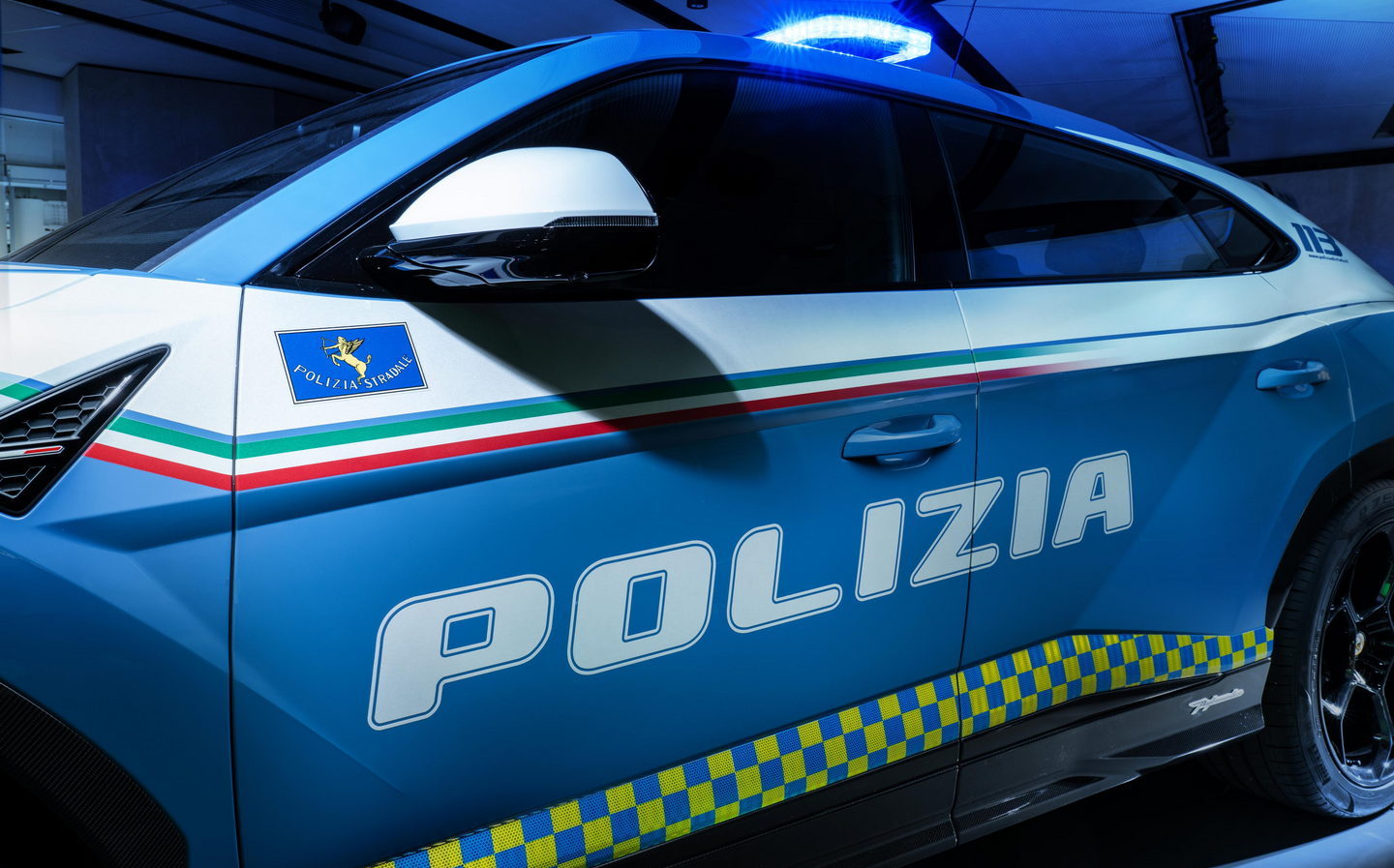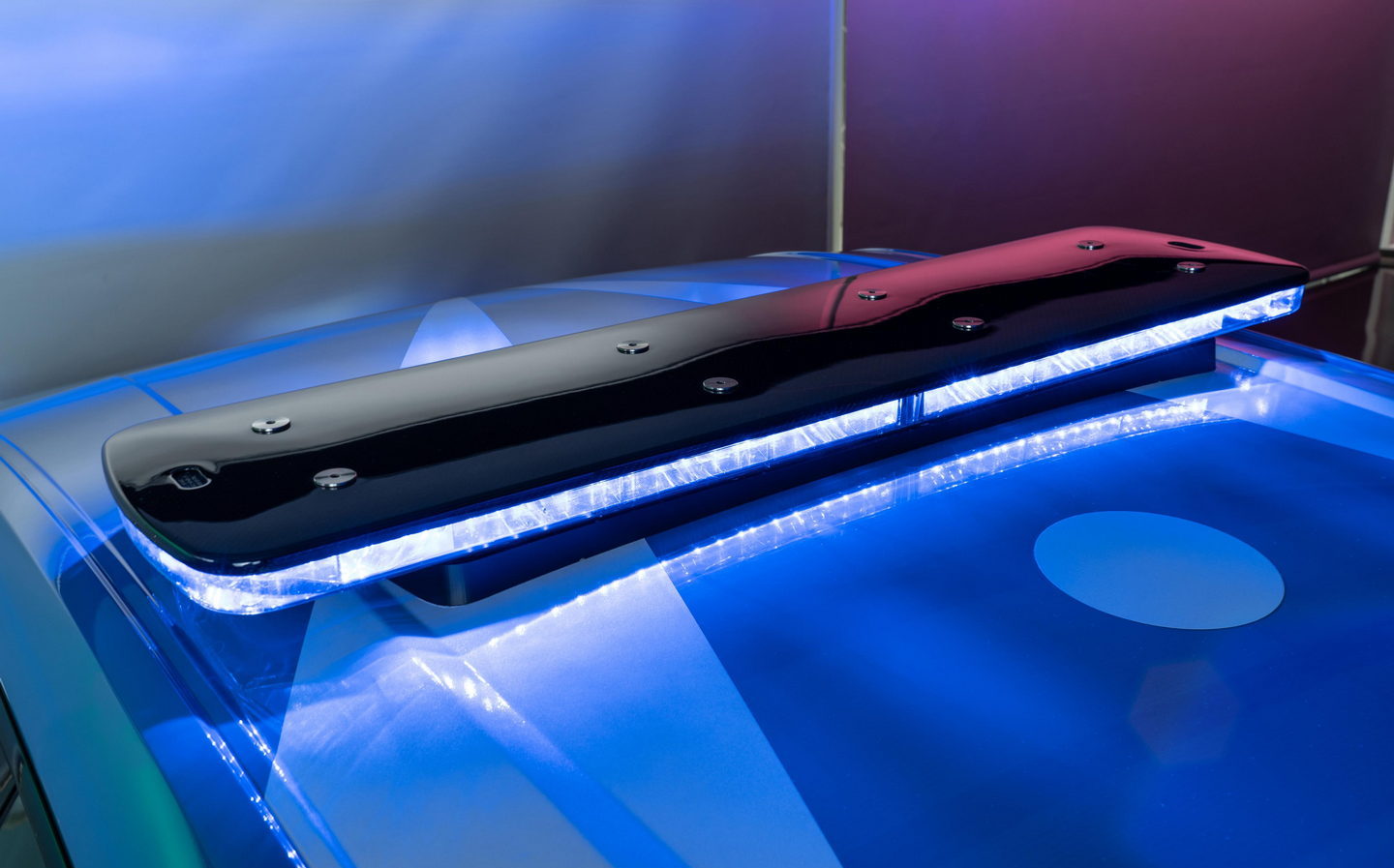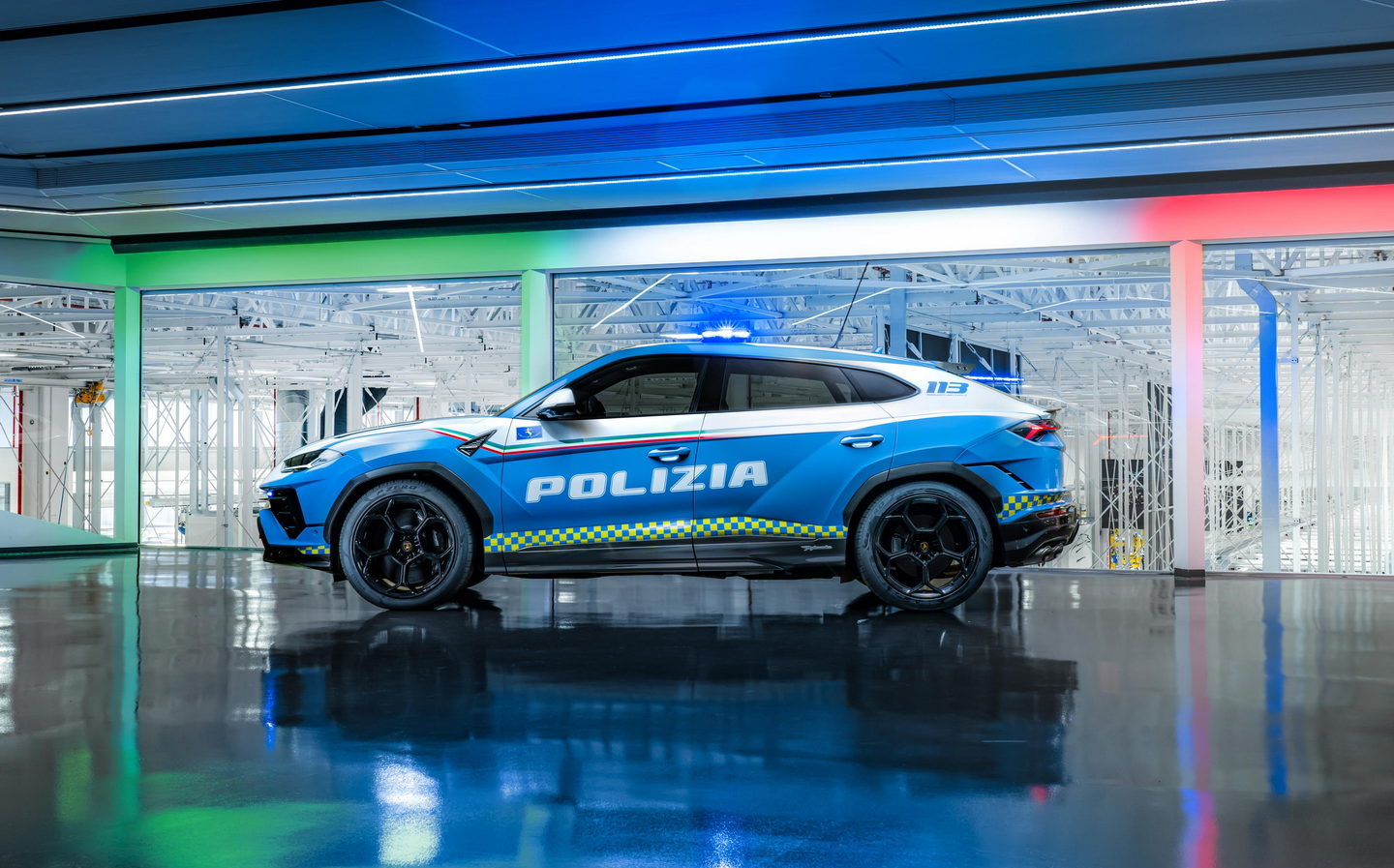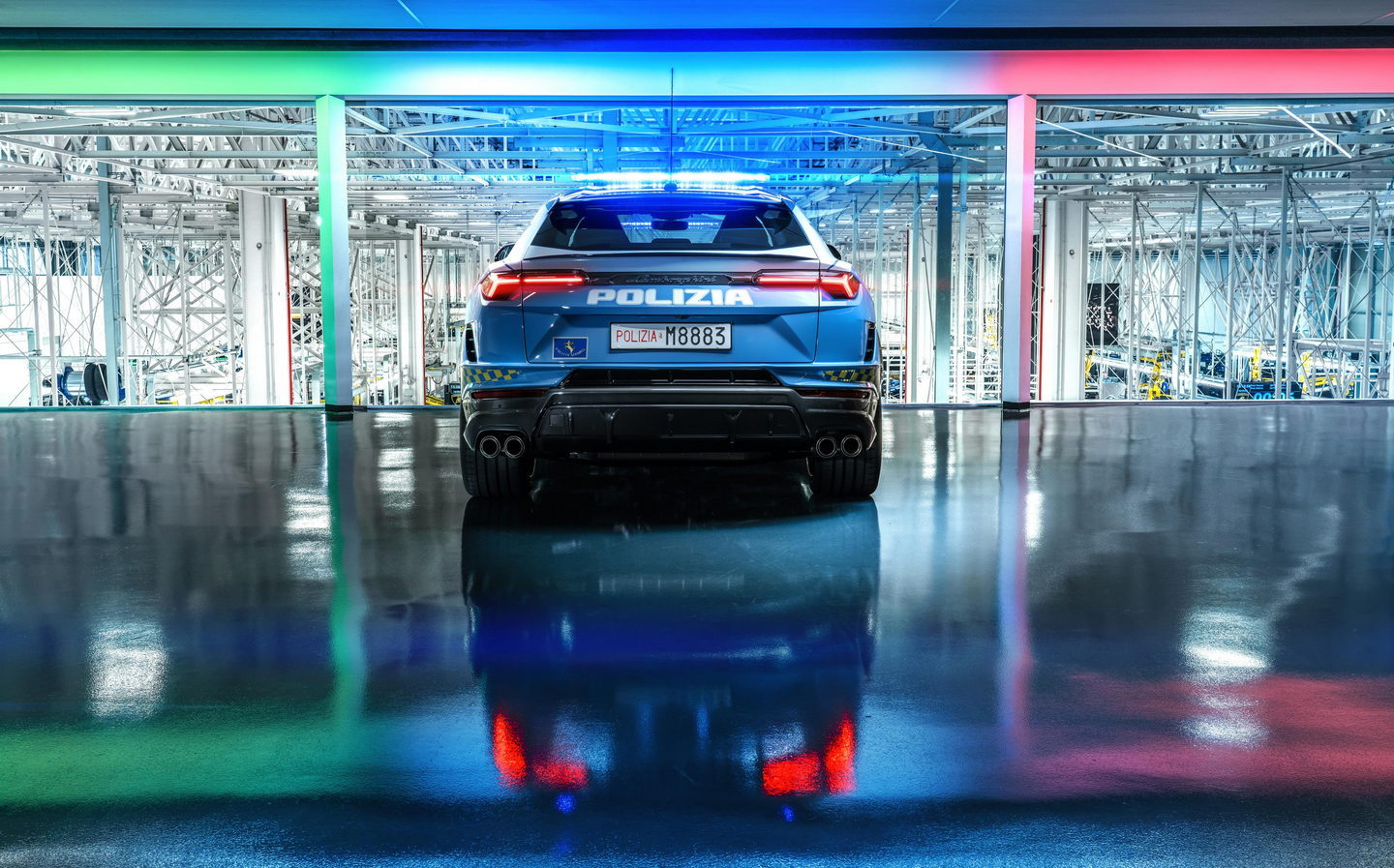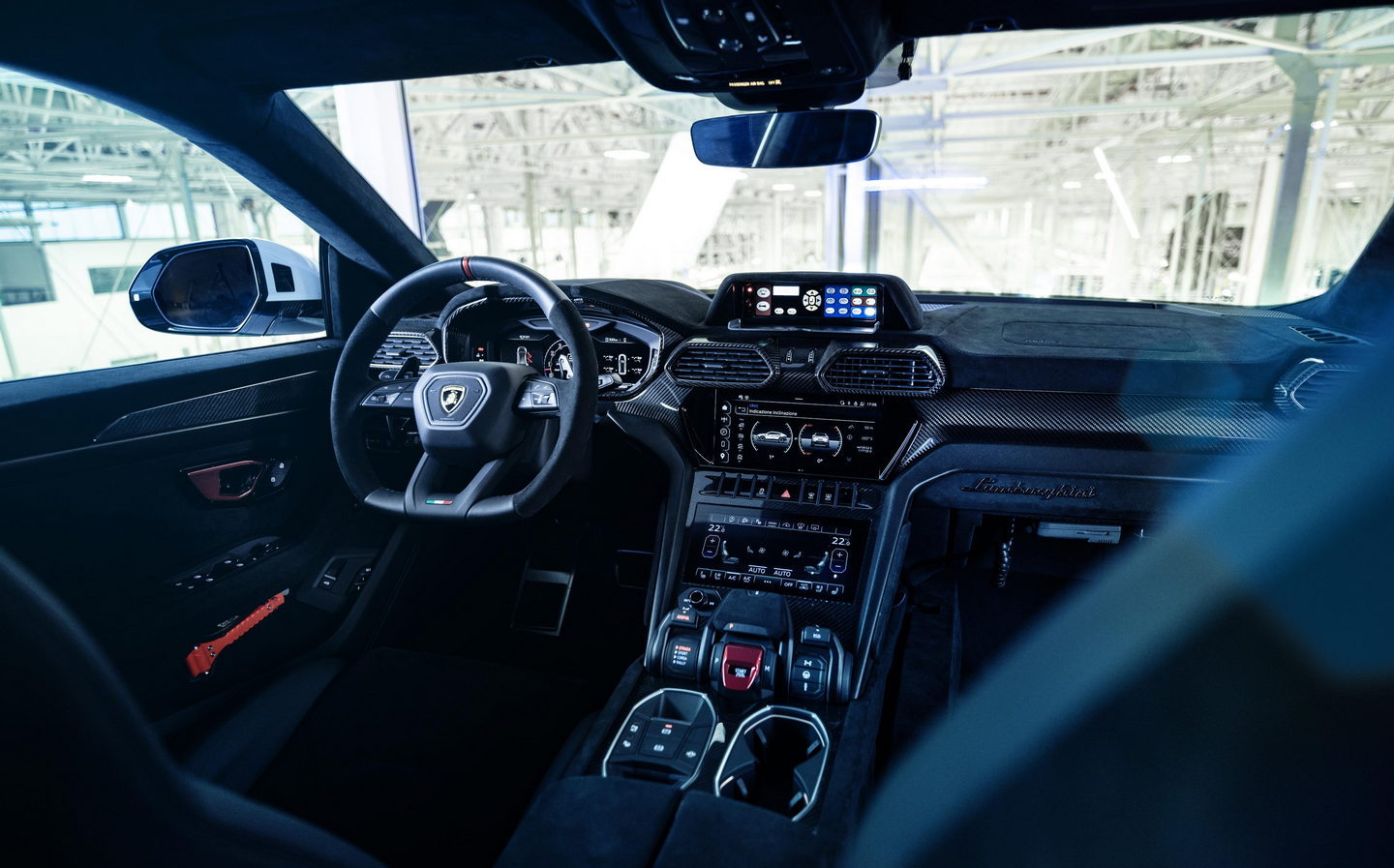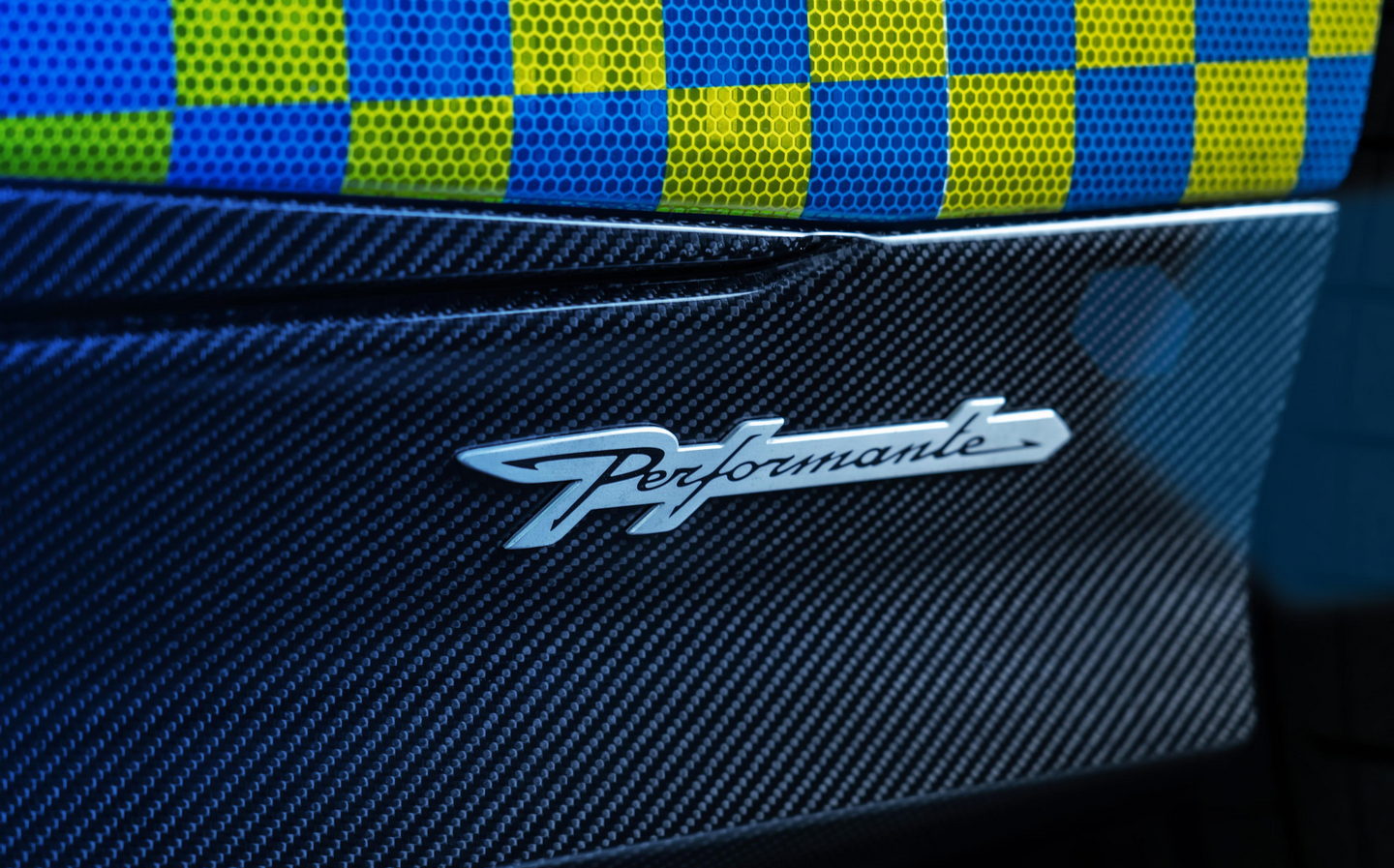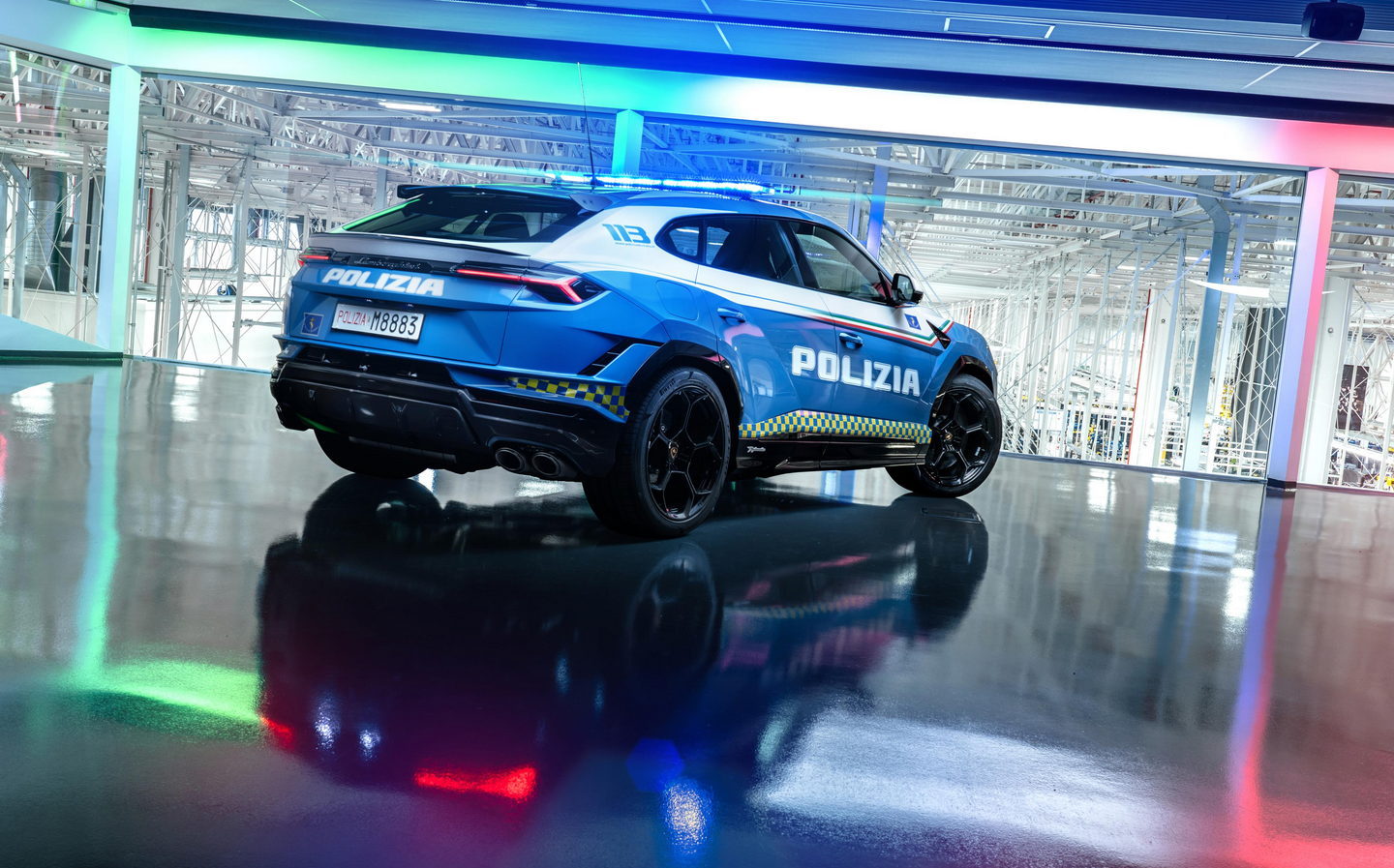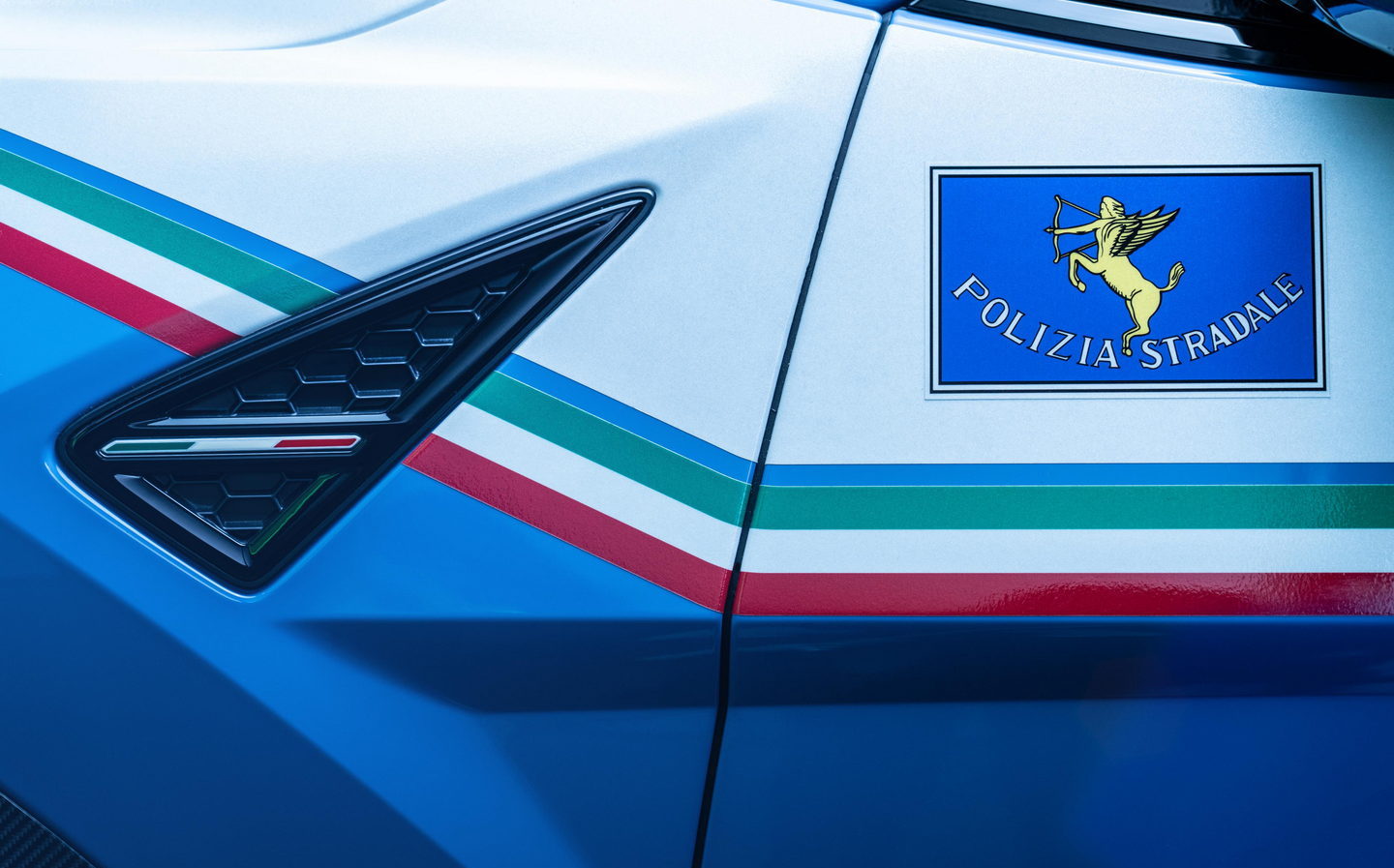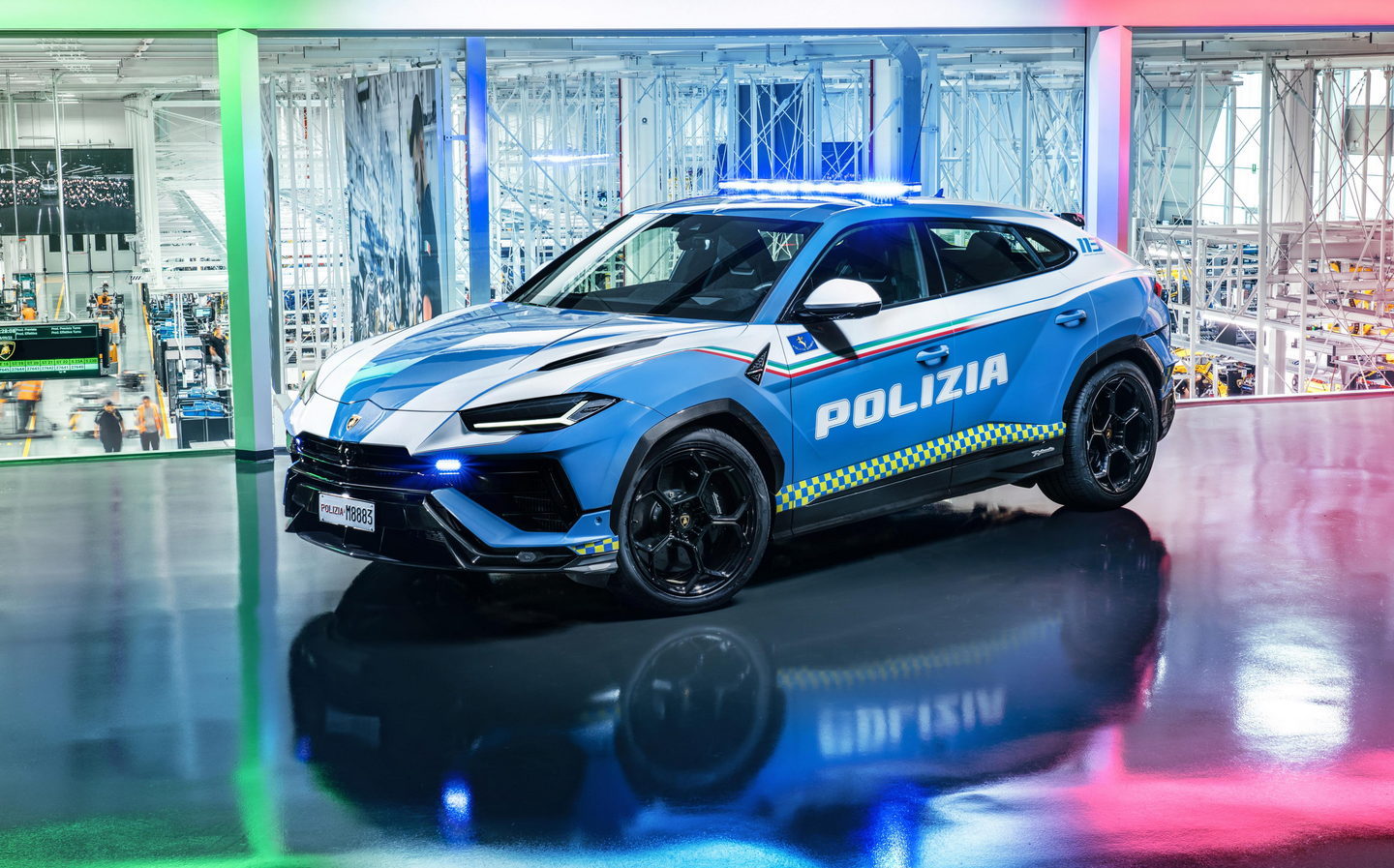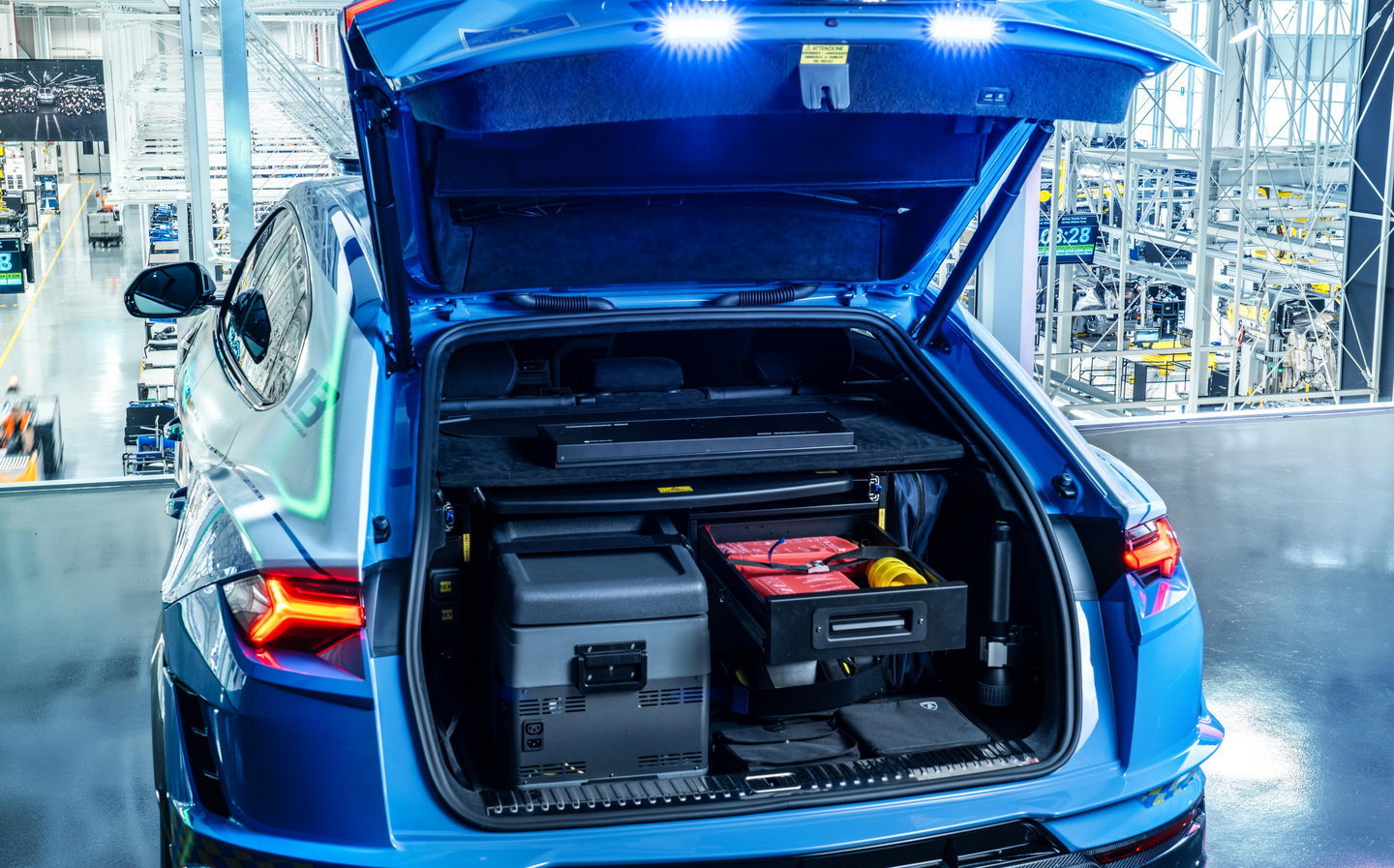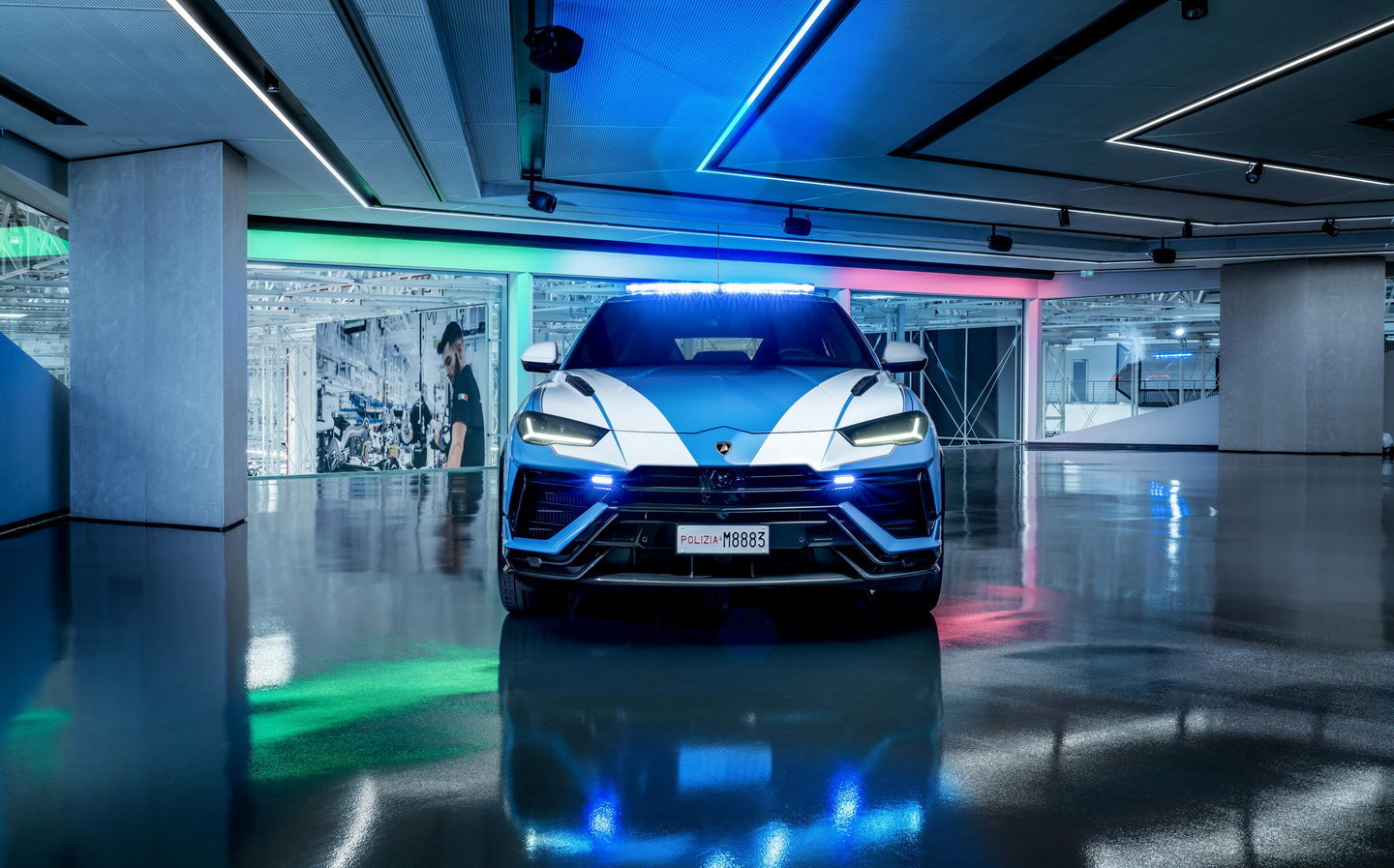Look out Charlie Croker: Italian police get hands on 657bhp Lamborghini Urus Performante
Hang on a minute, lads... it will be used primarily for organ transport
In the 1969 heist film The Italian Job, thief Charlie Croker (Michael Caine) is tasked with stealing a cache of gold bullion out from under the noses of the Italians. The getaway chase is a legendary bit of cinema, though Croker and his gang would have found it more difficult to flee in Minis if they’d come up against anything as fearsome as this: a police-spec Lamborghini Urus Performante SUV.
Part of a 20-year collaboration between the Italian supercar manufacturer and the Polizia di Stato in its home country, the liveried Urus — handed over in a ceremony in Rome today — is positively bulging with crime-stopping potential. Powered by a twin-turbocharged, 4-litre V8 making 657bhp and 627lb ft of torque, the Urus Performante canmanage 0-62mph in 3.3 seconds and goes on to a 190mph maximum velocity.
However, rather than chasing bad guys, Lamborghini says the police Urus will be used primarily for organ transport, a task for which previous cop Lambos in Italy have been deployed.
The Urus will also be used for “special services”, it added, which primarily means public relations work for the police.
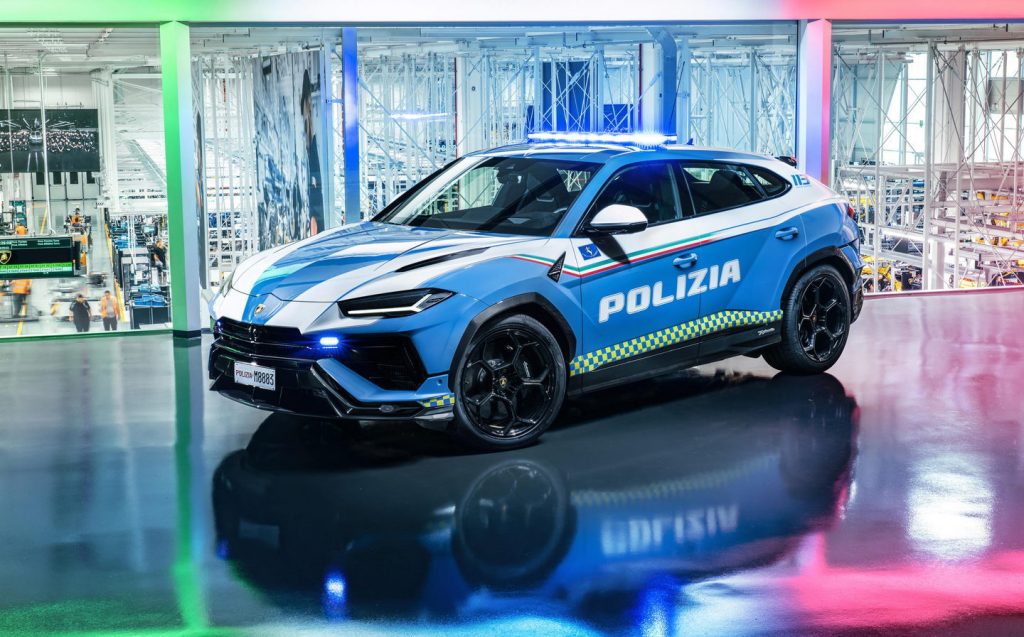
Sixth Lamborghini to get blue lights
The Urus Performante is the sixth model to enter the highway fleet of the Italian state police since 2004, when a Gallardo kicked off the collaboration between the two organisations.
It will enter active service in 2024, having been handed over to Matteo Piantedosi, the Italian Minister of the Interior, outside that body’s headquarters in the Eternal City. Stephan Winkelmann, the CEO and chairman of Lamborghini, delivered the keys personally.
Head of police Vittorio Pisani was also in attendance, presumably itching to get his hands on the keys for the first spin in the high-performance machine.
In order to do its work transporting vital organs and blood plasma at high pace, the Urus Performante was fully fitted out with bespoke kit by Lamborghini’s technicians at Sant’Agata Bolognese.
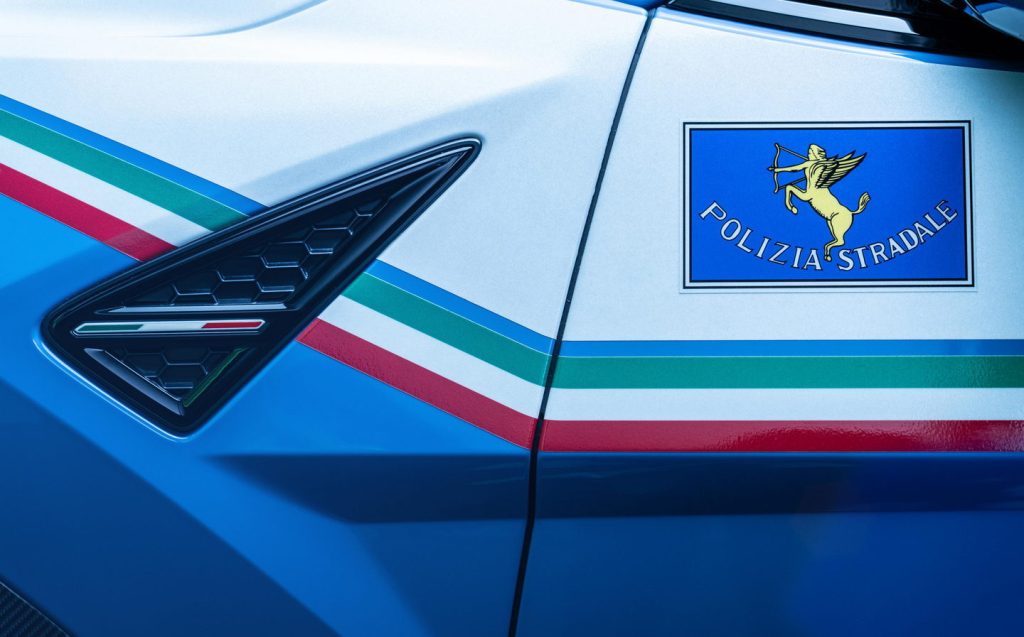
It has exterior livery to Italian state police specifications, complete with a main blue and white combination. The Italian tricolore of red, white and green forms a parting band along the flanks of the Urus, and it is repeated inside on the seatbelts.
Up top, there’s a 360-degree blue LED light bar, and the Urus also has a two-tone electric siren fitted. The cool exterior appearance is completed with the police logos applied to the doors in reflective film.
Fridge inside to keep kidneys cool
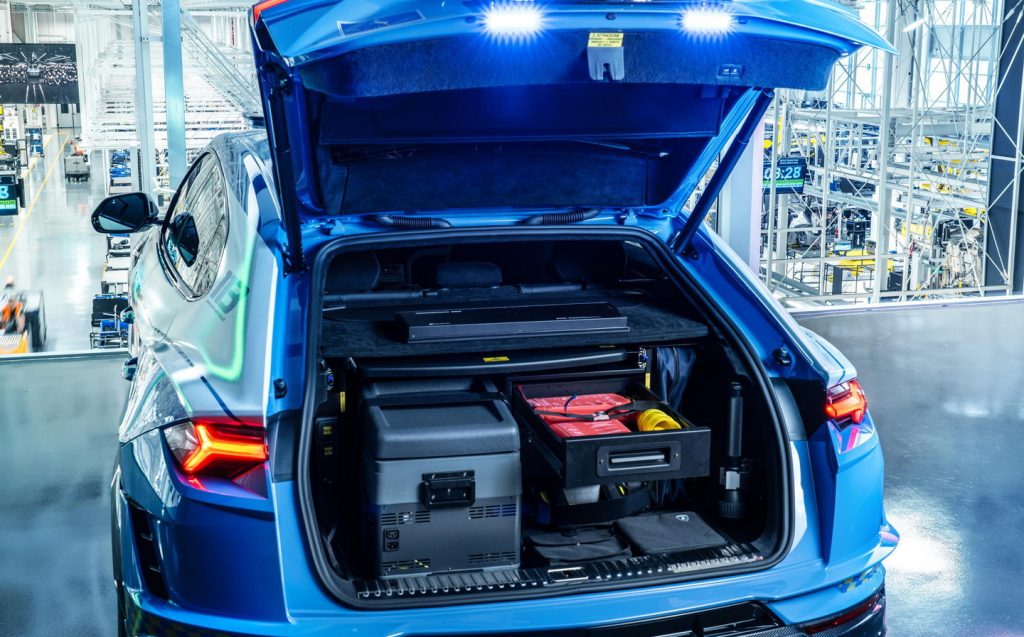
Inside, unique features of the police Urus Performance include an armoured weapon box, a flip-down message display, and a special compartment in the boot for stowing service equipment as well as a defibrillator for first-aid response.
There’s also a portable fridge, into which the organs necessarily go when they’re being transported, while a display and data logger continuously monitor its internal temperature to ensure the contents are being kept cool.
Lamborghini has donated several Gallardos to the Italian police over the years but the Urus Performante will serve alongside a Huracán LP610-4, the most recent V10 supercar used by the force.
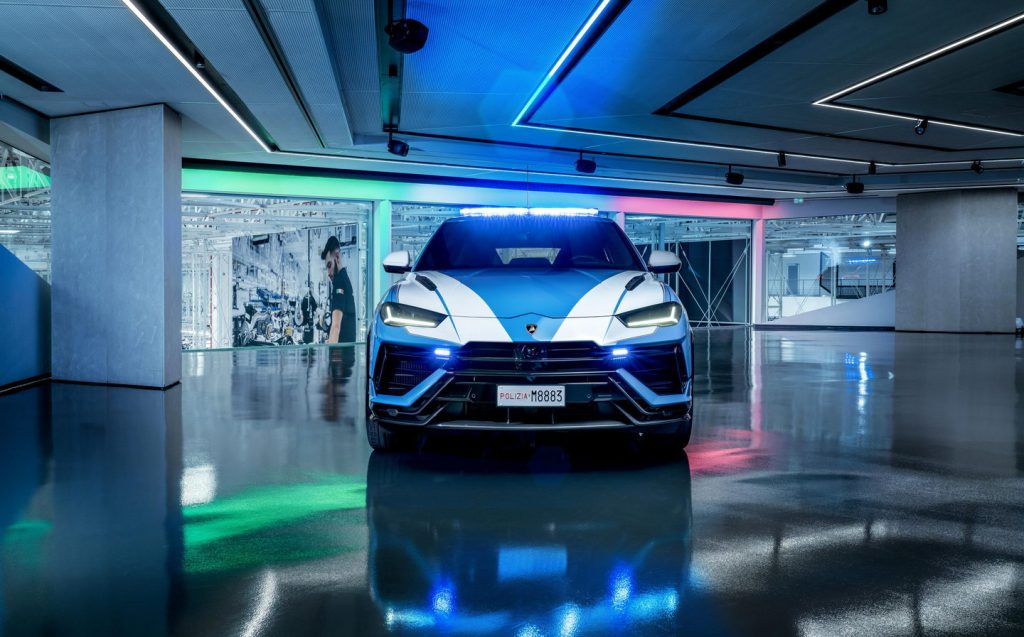
Winkelmann said at the Urus’ handover: “It is with great pleasure that we are continuing our 20-year co-operation with the Italian state police.
“Knowing that our cars are used for public duties and, above all, for crucial operations to save human lives, can only make me and the whole company proud.
“These initiatives, which bring us great satisfaction, demonstrate our innate close ties with Italy.”
Supercars used by global police forces
While many will expect that mega-power police cars are used for high-speed, Hollywood-style pursuits, the reality is that they are, in the main, either used for organ transportation or as positive propaganda and outreach tools for police forces across the world.
And Italy isn’t the only place to use Lamborghini police cars. In the Middle East, both Qatar and Dubai have been using Lamborghinis for years, the latter country using an Aventador pursuit car way back in 2013. Many supercars painted in police colours in such countries have either been confiscated from the owners or simply abandoned by the super-rich.
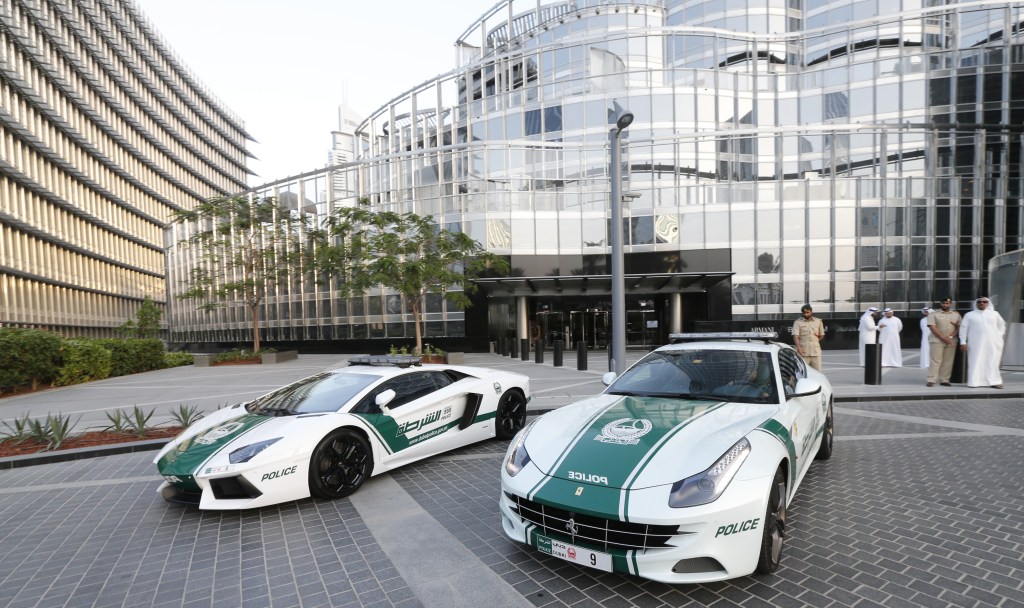
Indeed, the Middle East is fertile ground for outlandish service vehicles; in 2017 it had a 253mph Bugatti Veyron liveried up for police work. It has also previously used McLaren MP4-12C and Bentley Continental cars for the same purposes.
Both Panama and South Africa have been reported to have used Gallardo police cars over the years, too, while in 2014 the Los Angeles Police Department in America was donated the same mid-engined model — and finished it in proper US cruiser black and white livery for the full effect.
One US police department also took a tuned Chevrolet Corvette Z06 into its ranks in the late 2010s. Producing almost 1,000bhp and purportedly capable of 228mph flat out, the New Braunfels PD in Texas said the car was only used for “community outreach” work in the local area, rather than for tearing along highways after perps.
British police use a Lotus… and Skoda Scalas
Other weird and wonderful police cars over the years have included a 225mph Brabus CLS V12 S Rocket in Germany, a 205mph Nissan R35 GT-R Nismo in Japan, a 187mph Spyker C8 Spyder in the Netherlands and a liveried-up Lotus Evora, which was actually used by the Devon and Cornwall Police, rather than the Norfolk constabulary.
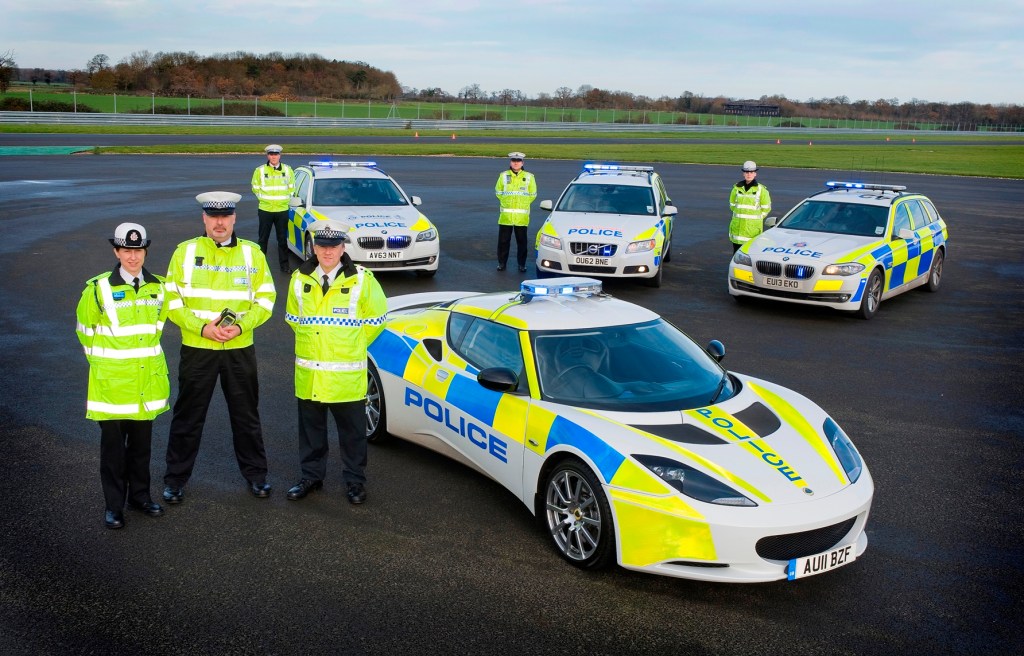
Lancashire Police may feel a little hard done by. They recently took delivery of a fleet of 92 Skoda Scala 1.0 TSI beat cars, featuring 1-litre, three-cylinder turbo engines that produce 109bhp and 148lb ft. Their performance credentials? A searing 0-62mph time of 10.1 seconds and 125mph top speed.
Related articles
- If you were interested in the Italian police version of the Lamborghini Urus, you might like to check out the hypercar Lamborghini will take to Le Mans to take on Ferrari
- Did you know that last year was Lamborghini’s biggest ever for turnover, topping €2bn for first time?
- You might also be interested in Ferrari’s electric car plans … and the fact that it will continue producing V6, V8 and V12 engines beyond 2030
Latest articles
- Seven great automotive events to visit this summer, from F1 to art and champagne
- Watch new Porsche 911 GT3 smash Nürburgring record for manual cars
- Skoda Elroq 2025 review: Czech carmaker can’t seem to miss with its electric family cars
- Five best electric cars to buy in 2025
- Should I buy a diesel car in 2025?
- F1 2025 calendar and race reports: The new Formula One season as it happens
- Zeekr 7X AWD 2025 review: A fast, spacious and high tech premium SUV — but someone call the chassis chief
- Denza Z9GT 2025 review: Flawed but sleek 1,062bhp shooting brake from BYD’s luxury arm
- Extended test: 2024 Renault Scenic E-Tech review


